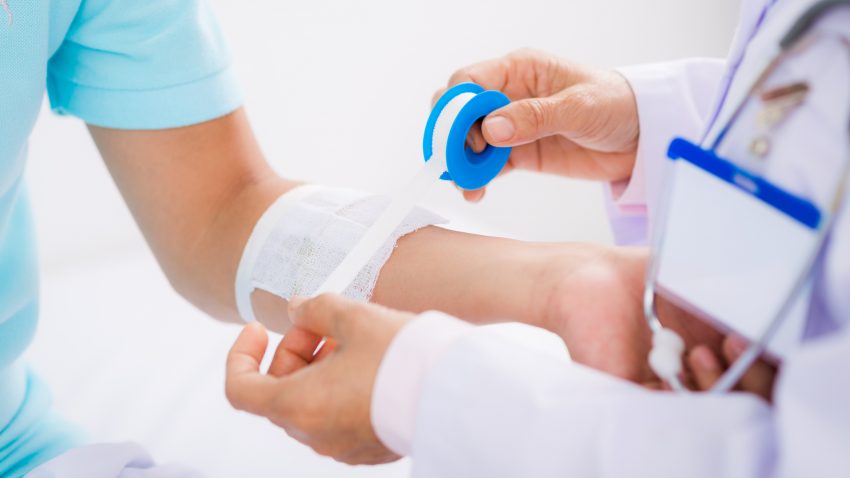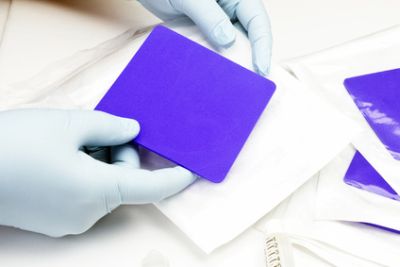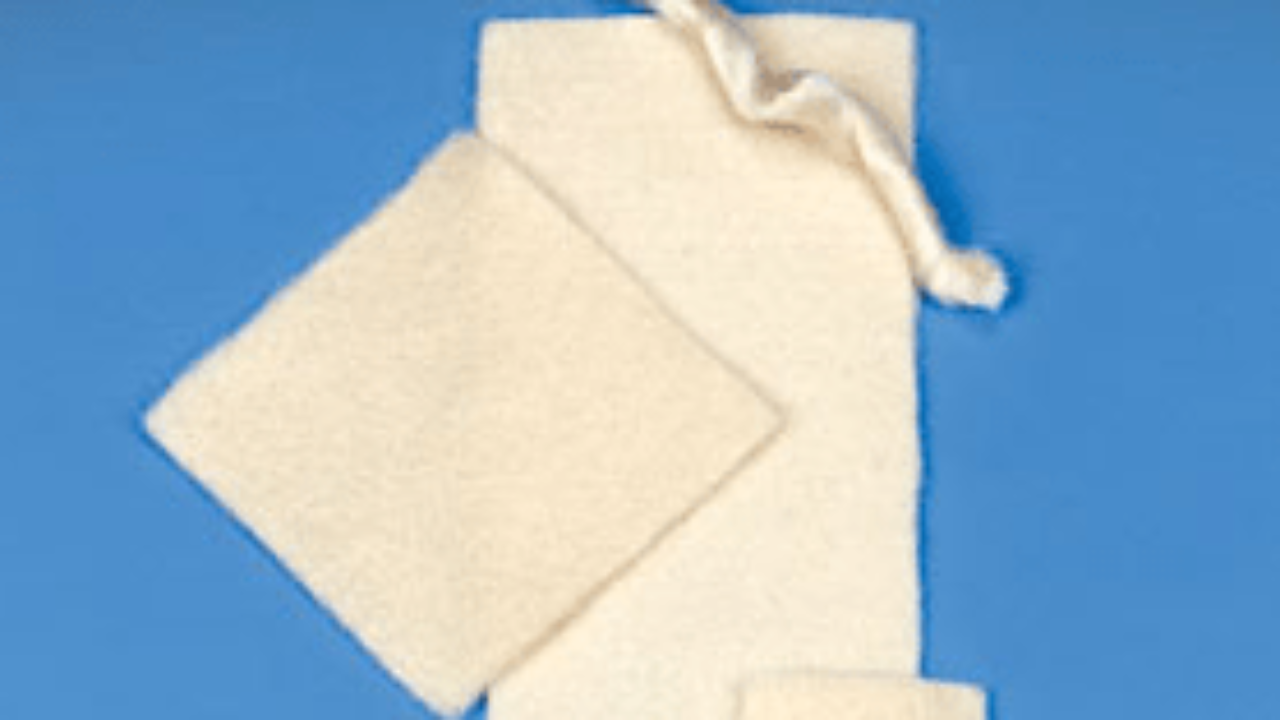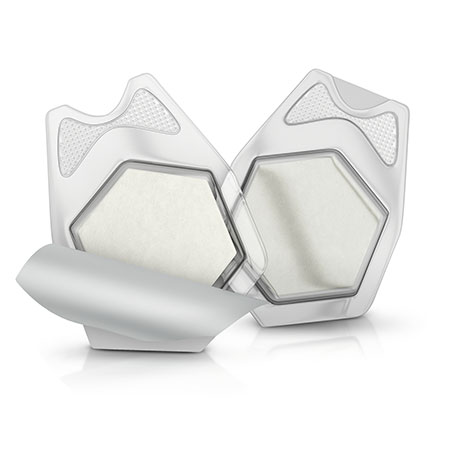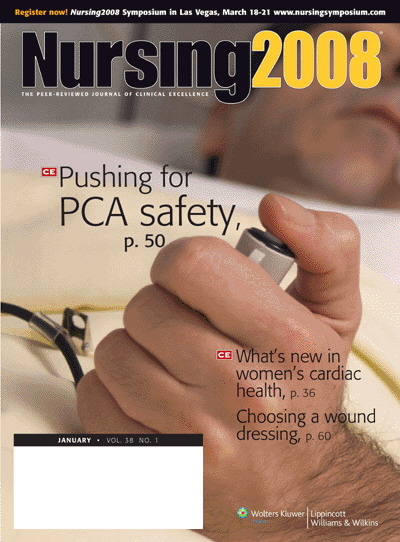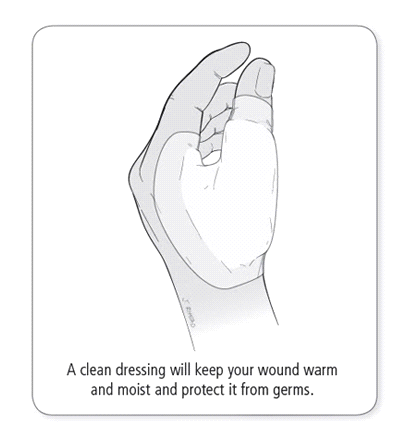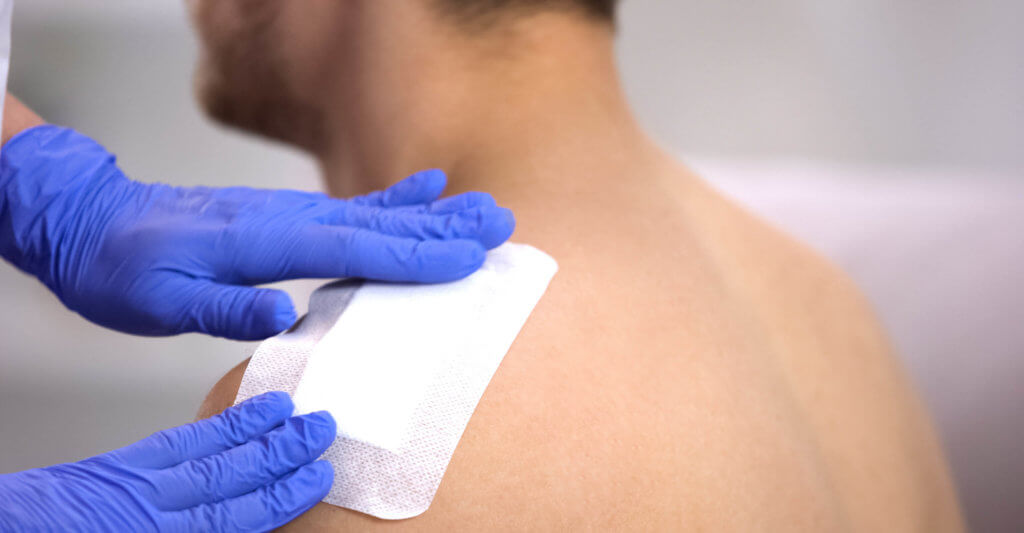Dry Wound Dressings Also Provide A Barrier Against Bacteria And Absorb Fluid

Hydrogels can only absorb a minimal amount of fluid.
Dry wound dressings also provide a barrier against bacteria and absorb fluid. But since they contain high water glycerin content they are able to donate moisture to dry wounds. Film dressings are typically used in combination with gauze or other dressings and act to maintain the moisture content of clean wounds. The role of a wound dressing is to provide the right environment to enhance and promote wound healing. Alginate wound dressings which are suitable for open wounds that have heavy fluid discharge or exudate.
Obtain and maintain a clean wound bed absorb excess exudate and provide moisture if the wound is dry while also filling covering and protecting the wound. Alginate dressings are made to offer effective protection for wounds that have high amounts of drainage and burns venous ulcers packing wounds and higher state pressure ulcers. Alginate wound dressings will not only maintain moist wound environment but also absorb this exudate leaving proper environment for new tissue growth. They provide a moist environment favorable for wound healing and a barrier against exogenous bacteria.
Moisture retentive dressings also act as a barrier against bacteria and absorb excess wound fluid creating opportune conditions for healing. It is also important to measure levels of drainage appearing on wound dressings as they are healing. When selecting a dressing containing silver wound care goals are much the same as when not using a silver dressing. Nancy morgan who specializes in wound care says that the wound drainage on dressings is measured by the percentage of fluid saturation as follows.
However these wound dressings may not be suitable for open wounds with heavy exudate. The silver difference is bioburden management. In comparison to wounds treated with 1 silver sulfadiazine those treated with hydrocolloid occlusive dressings had more rapid wound healing less pain and needed fewer dressing changes. Wound fluid dry wound.
These dressings absorb excess liquid and create a gel that helps to heal the wound or burn more quickly. 61 62 as a result the cost of care was lower. In that respect they could be called interactive. In its simplest form in the selection of a dressing use a wet dressing for a dry wound a dry dressing for a wet wound and an antibacterial dressing for a colonised or infected wound.
Lack of drainage means that the wound is too dry and this will hinder healing. Containing sodium and seaweed fibres these dressings are able to absorb high amounts of fluid plus they are. Hydrogel wound dressings are 80 to 99 water or glycerin based wound dressings that are available in sheets gels or impregnated gauzes. Although these dressings cannot absorb fluid they are permeable to moisture allowing one way passage of carbon dioxide and excess moisture vapour away from the wound.
0 025 is effective against most bacteria and still noncytotoxic. A moist healing environment stimulates cell proliferation and encourages epithelial cells to migrate.
